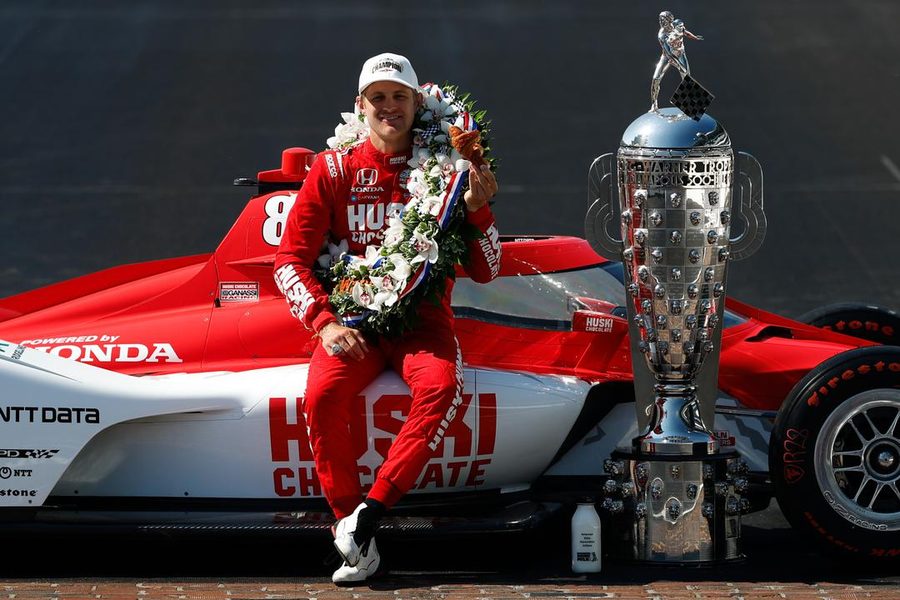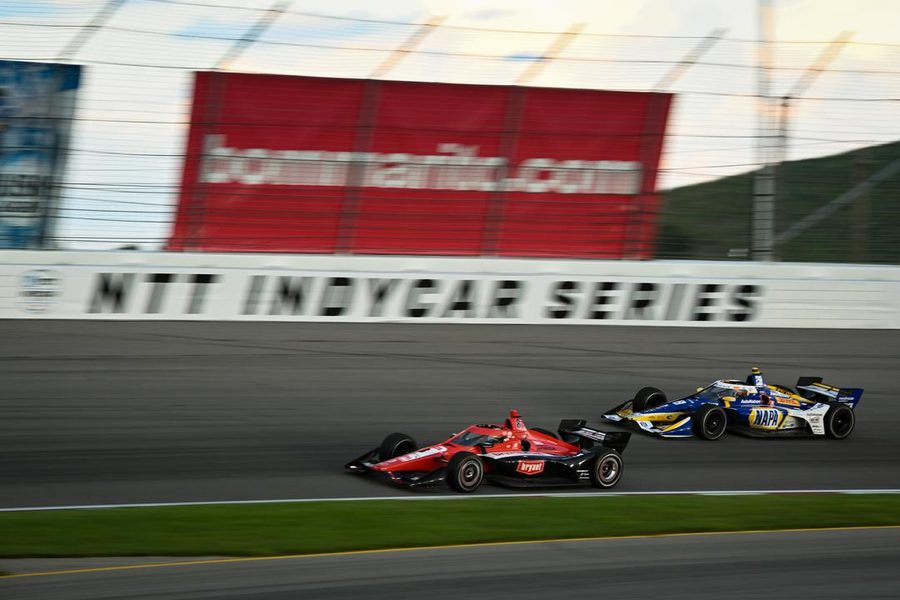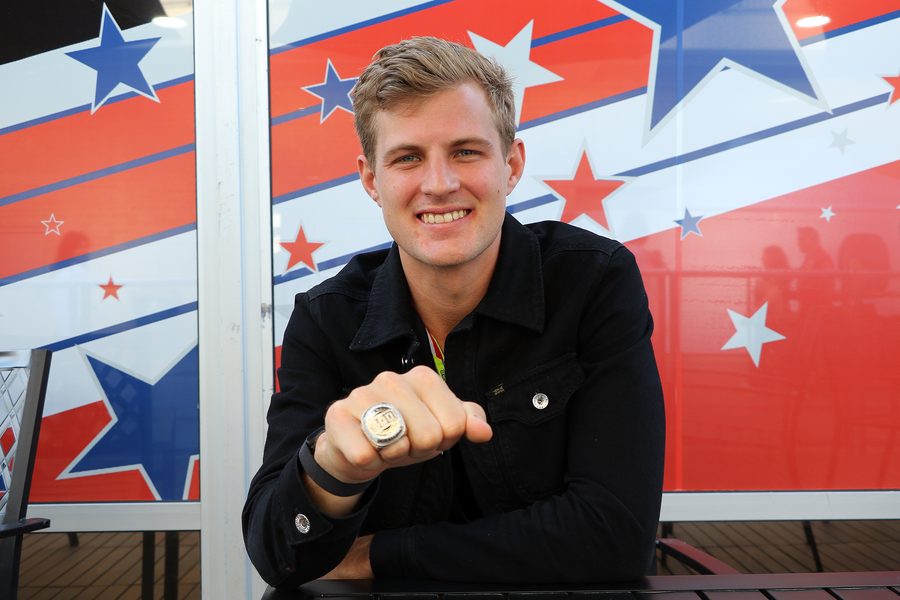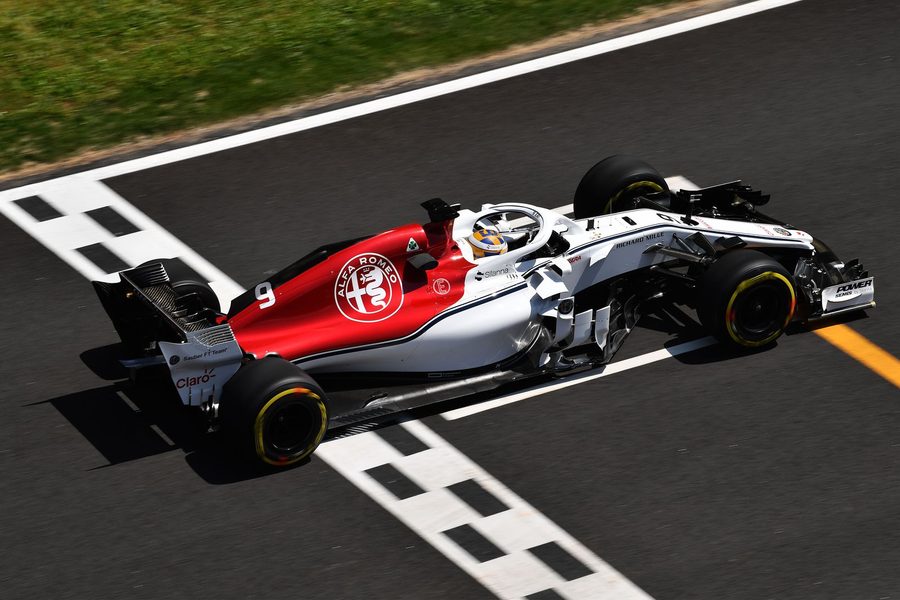Only a few years ago he tried to shine in Formula 1; to be like his Swedish compatriot Ronnie Peterson. However, for various reasons, he was unable to do so. He finally found his happiness overseas, and the icing on the cake was last year's victory in the legendary Indianapolis 500 race. Roksana Ćwik talked to Marcus Ericsson before the US Grand Prix.
Marcus, the last time we saw each other was in 2018, plenty of things have changed since then. Are you enjoying your life outside F1 now?I do, yeah, it's been quite a change. Obviously, I went all in on the American way and then American racing, and it was tough in the beginning. It took a year and a bit to sort of get used to everything here, but I was fully committed and now really the last two years it's been starting to pay off big time. I had a bit of a breakthrough last year [2021] and won my first races in IndyCar, and then I've been building on that this year and obviously won the biggest race we have here. So, it's been a fun journey, and I'm really enjoying myself.
How does it feel to win the Indianapolis 500, the most iconic race, along with 24h Le Mans and the Monaco Grand Prix?I still think it's better than these two, but I'm biased, of course. But it's hard to explain even it's such a big race, and 350,000 people are there that day. It's so big here in America, they live for these big events, you know. Like the Super Bowl, the Stanley Cup, the NBA Finals. They live for that in America, and for us to have the Indy 500 is the biggest race by far. So to win that, definitely people tell me «it has changed your life». It's before you win and after you win, it's like almost two different lives. It's been amazing. Not only that, but it's been, for me, a bit of a revenge as well. In my years in F1 it was tough, and some people didn't think I was very good, and blah, blah, blah, you always hear things. So for me, it was a chance to winning that race was a bit of a revenge for me. Saying to everyone, look, I can win, I can perform, I can do this, and for me that was fantastic.

Your first race in IndyCar and your last. What was the most significant difference when you debuted in the series and when you are now?I think understanding the racing, understanding the cars has been a big thing for me. You know, coming from Formula 1, you have the power steering, the tyre heaters, the cars with a lot of downforce… it's a lot about precision, you need to be perfect in your driving. IndyCar is a lot more basic car, less downforce, no power steering, no tyre heaters. It's rougher, you need to hustle the car, you have to be aggressive, you need to really take control of the car differently. That's been a big thing for me to learn that and learn how to race those cars. I think that's what I've learned the most from my years in IndyCar, is how to maximize that type of racing car, which for me in the beginning was very different to what I was used to. It took me a while to get the hang of it, but now I really feel like every time I jump in an IndyCar, I feel really at home with it.
How does it feel to be on the podium and win races?I think it feels amazing. There was one thing in Formula 1, and I did five years and never had the chance to do it. It's hard as a driver, as an athlete because you feel like you improve, and I felt like I put in significant effort and was getting better and better, but the results were the same. And that's the problem sometimes with Formula 1, is that if you're on a smaller team, it's hard to show what you can do as a driver. And do I feel like I didn't get the chance to show what I could do? Yeah, maybe. But at the same time, that's the sport, that's Formula 1. It helped me get another opportunity, and that was one of the big reasons why I wanted to go to America. It was to show for myself, but also for the rest of the world, that I can perform, I can win, I can be on the podium, I can run up front, and I'm happy to have been able to do that.
What is it like to have a spotter?It's different. It's not something we have in European racing, obviously. In the beginning it was hard to have someone talking in your ear, but then you get used to it. It's quite good on the ovals because it's so fast and you need to have all eyes forward, so it does help quite a bit. But of course, sometimes it gets stressful to have someone telling you what's happening, so it's both ways there. But I have a good guy in Mark who has been my spotter the last couple of years, and he's really calm, and he's been working well. You need to have a good relationship and really trust your spotter for it to work.
What was your initial reaction when you heard that Romain Grosjean was coming to IndyCar?I thought it was great for the series, it's great to see more drivers coming from the Formula 1 world and moving to IndyCar, so in that sense I was really happy to see it. I think he's done a good job there, he's helped grow the sport in America and even in Europe to bring more interest into IndyCar, so I hope and think it will be even more drivers coming that way.

Do you think Formula 1 should be like IndyCar, more flexible with driving, penalties?Yeah, I mean, in IndyCar you can do many things, it's not a lot of penalties and so on. I think that's great in many ways, but also it's you have to draw a line somewhere as well, and sometimes this year it was quite aggressive for a lot of us, but that's racing. The most important is that it's consistent, so I think maybe in F1 you always have to penalise someone and sometimes that feels like it's a bit too much. I think there is some stuff there that you can do a bit less and let the drivers sort of do it.
Do you feel that you are happy now? For me, you're such a different driver now, you're less stressed, you're smiling all the time.Yeah, I feel happy. I feel like at the end of my Formula 1 career it was a lot of frustration and I felt like I didn't really enjoy it as much as I should have done. Then coming to IndyCar and sort of rebuilding my career has really done me well, and I feel very happy with where I am in my racing, in my life, and being here in America and having like a second career is great.

There are some plans for IndyCar, MotoGP and F1 to be held at the same track on the same weekend. What do you think of these plans? In my opinion, they are strange.Yeah, I don't think it would be the best because Formula 1 will always be the number one and the biggest one and for IndyCar, we will just be like a support series. I doubt that's the way we want to do it. We aim to be a big series, and I am not convinced that would be good, actually.
Which victory or which podium was the best outside the Indy 500?I mean, the 500 is by far the best, but I think my other two wins… Nashville was special, it was a very crazy race and I crashed and then I managed to win, and it was the first.
It was outstanding, I watched it and was really impressed.Yeah, that was pretty crazy, and also it was the first ever street race in Nashville so that was also making a bit of history. But of course, also Detroit was my first ever win in such a long time, so for me that's also very special. I think all my three wins have been very, very special in its own ways.
Do you feel people have more respect now after you showed you could win the race?I think so, yeah, for sure.
How frustrating was it for you to turn up at Spa back in 2019 and then not have any information that you were going to replace Kimi Räikkönen?It was very frustrating that weekend because I also gave up a race in IndyCar because we were racing that weekend in Portland. I had to not do that race to be in Spa and I was hoping I would drive [in F1] but, in the end, it is what it is, it's fine. Like I said, things have worked out for me so I'm pretty happy with where I am at the moment.
I want to ask one question – about Le Mans. Are you thinking about it?Yeah, I would love to do it, for sure. I did Daytona 24 hours this year and that was the first endurance racing I've done, and I thought it was really fun and in the future it's definitely on my list. You know, I've done Monaco, I've done Indy 500. I certainly want to do Le Mans as well before I stop. Hopefully, I have many years left, so I will get the chance. I hope I can get the chance in the future.
If someone calls you and says: Marcus, there's a place for you in F1. What would you do?I mean, it's a hard one, you know. I always say it like this, I never say never and if there is opportunity in Formula 1, I think no one in racing would turn it down, you know. At the same time, I'm super happy in IndyCar and I don't actively try to get back to Formula 1. So, if that scenario would happen, it's hard to say what you would do but I think where I am now, I'm in a happy place and I want to stay in IndyCar.

IndyCar is about racing in special places. After all, we have Sebring, Indianapolis, ovals, street circuits. Do you think it's the right direction for F1 to go beyond the normal tracks in this way?Yeah, I think in F1 some of the tracks all very similar with big run-up areas and asphalt everywhere. Sometimes it takes away a bit of the beauty with the sport. And in IndyCar we're the opposite. We go to a lot of old school tracks. Obviously, there's a balance there because you need to have the safety aspect and a Formula 1 car is a lot faster than an IndyCar in the corners so you need bigger run-up areas, you need more safety. So it's a balance there but I definitely think that F1 has to be careful to not only go to the new tracks you need to keep some older tracks as well, so I think there's a balance that Formula 1 has to balance well.
You mentioned safety. What do you think of the situation in Japan?I don’t think it was good, especially being there that weekend in 2014. For me, the problem is when the visibility is so bad even if you are going slow or fast, when you see so little, it's very dangerous. In that situation, we cannot have cars on the track even if it's red flag or yellow flag or whatever it is, when it's so bad visibility and water on the track, things can happen without even anyone trying. Formula 1 certainly needs to learn from that and make sure that that doesn't happen in those circumstances. Okay, if it was dry and sunny and then a truck comes out, okay, fair enough, it's red flag, but when it's raining or visibility, there needs to be better decisions and I hope they learn from that.
Some opinions were comparing that IndyCar could cancel the race and waited for good weather for a long time, and there was a lack of patience in Japan because it was the first race there after several years because of COVID. Do you think there was more politics and it wasn't just about safety? In my opinion, it is ridiculous to start a race when you know it is very dangerous.Yeah, I mean, it's hard because one thing is you want to drive, you want to put on a show, and you should be able to drive in the wet. Obviously these cars are difficult as well because they create so much spray and so it's a hard one. I thought it was good they restarted it because it did work, but somehow we need to find a way to make these cars a bit less spray and easier to drive in the wet. I think it's more safe, but it's difficult these days to get the wet racing.
Thank you so much for your time.Thank you.




